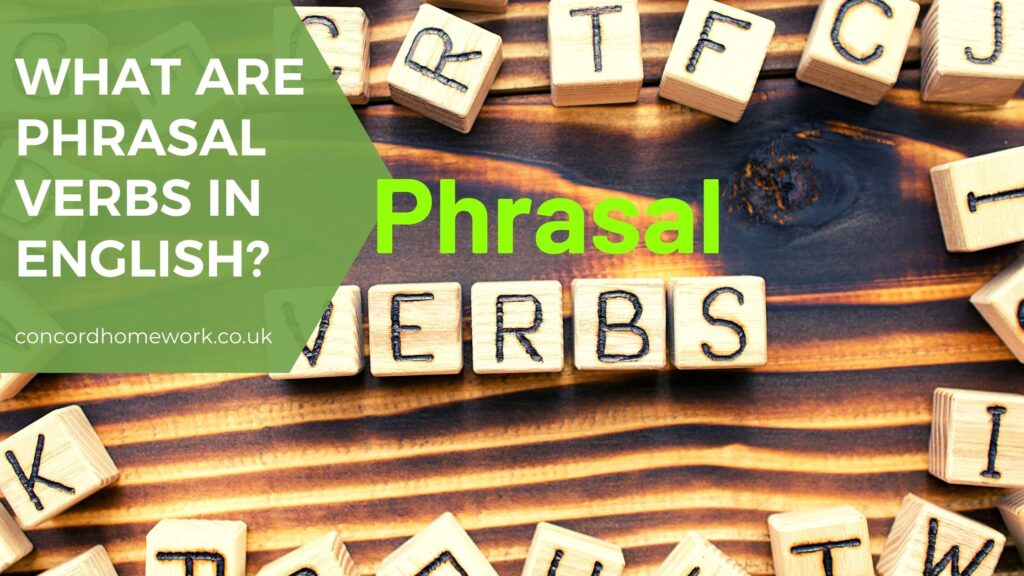Phrasal verbs are simply pronouns, nouns, and noun phrases that are put together.
What are phrasal verbs in English?
Phrasal verbs are compound verbs consisting of a verb, like come or take, and a particle (i.e. an adverb or a preposition), like off or up. They are a common and important part of English, especially in speaking and in informal writing. Often they have an equivalent formal word, for example, make up (informal phrasal verb), and invent (formal equivalent). New phrasal verbs are being created all the time, particularly by young people.
Phrasal verbs (‘phrasals’) are not difficult to learn and use, but you cannot always guess the meaning of a phrasal from its verb and particle. In addition, you need to be aware that the same phrasal verb can have more than one meaning.
The verb take off, for example, has several different meanings: you can take off
(remove) your coat, you can take off (imitate) a person, and an aeroplane can take off
(leave the ground).
Phrasal verbs are a very important part of English. Native English speakers often use phrasal verbs because they are short and efficient, so learning phrasal verbs can help you to understand what native speakers are saying. Most phrasal verbs are used in spoken and written English and can be used in both informal and formal situations, such as at work.
Transitive or Intransitive
Some phrasal verbs are transitive. This means the verb has an object.
For example:
I come from Rome.
In the example, “Rome” is the object of the transitive phrasal verb, “come from”.
Some phrasal verbs are intransitive. This means the verb does not have an object.
For example:
The taxi broke down on the way to the airport.
This happened to the taxi naturally, without anyone’s action. There is no object. In this example, “broke down” is an intransitive phrasal verb.
Separable or Nonseparable
Phrasal verbs are either separable or nonseparable. Unfortunately, there is no rule that will tell you if a phrasal verb is separable or nonseparable simply by looking at it.
Inseparable two-word verb This means that nothing can go between the two words.
That horrible dog just turned on me. (It suddenly attacked me.)
This is not a problem if you learn this verb as turn on me, turn on you,
turn on him, and so on.
Separable two-word verb This can be a little more difficult. If the object is short, like a pronoun (you remember, words like I, me, him, us) it MUST come between the two words of the verb. If not, you have a choice.
For example
I turned on the television.
I turned the television on.
I turned it on. (Now we can watch it.)
This can be a problem. So you have to remember it as turn it on.
Three-word verbs
Three-word verbs are almost always inseparable. I don’t know how you put up with him. He is so rude all the time.
No problem.
But there is a small group of three-word verbs which have an object
get it over with
put it down to
take it up with
Let us know if you struggle with phrasal verbs in the comments below.
“Thank you for taking the time to explore this topic with us! We hope you found the information helpful and insightful. Have any thoughts, questions, or additional examples to share? We’d love to hear from you in the comments below!
Don’t forget to spread the word by sharing this blog with your friends, family, and colleagues. Together, let’s continue to learn, grow, and connect with the world around us. Happy reading and sharing!”
Follow Me On TikTok:
Follow me!????????????????
Follow me on YouTube:
Subscribe!????????????????
What topics/worksheets do you need? Let me know in the comments below!

